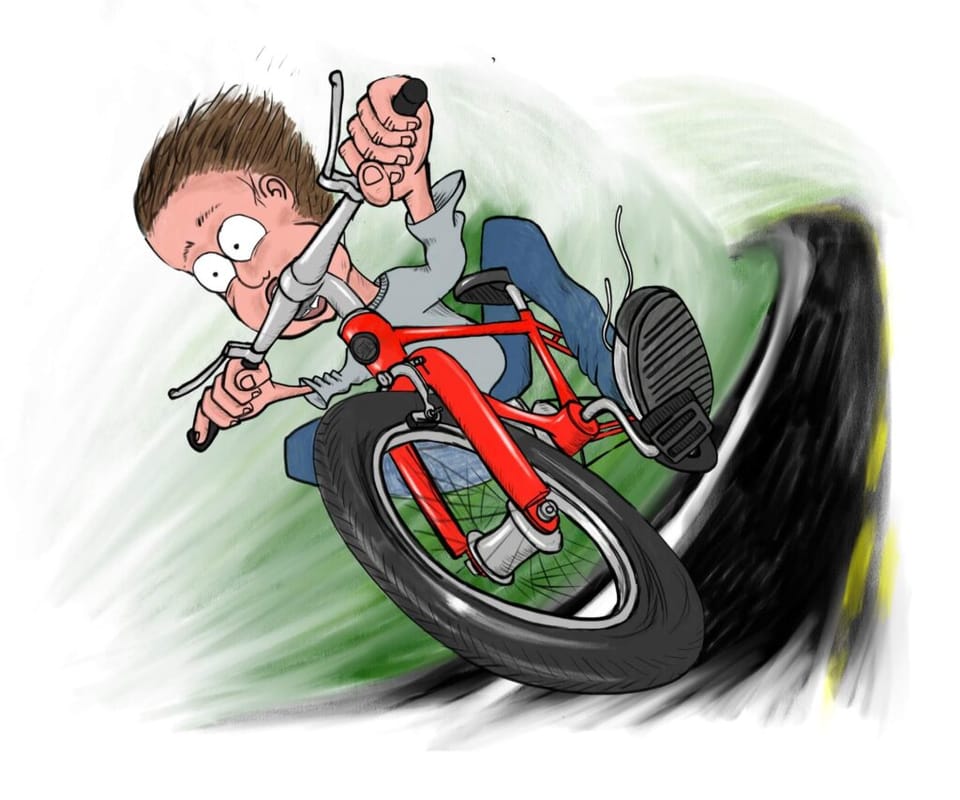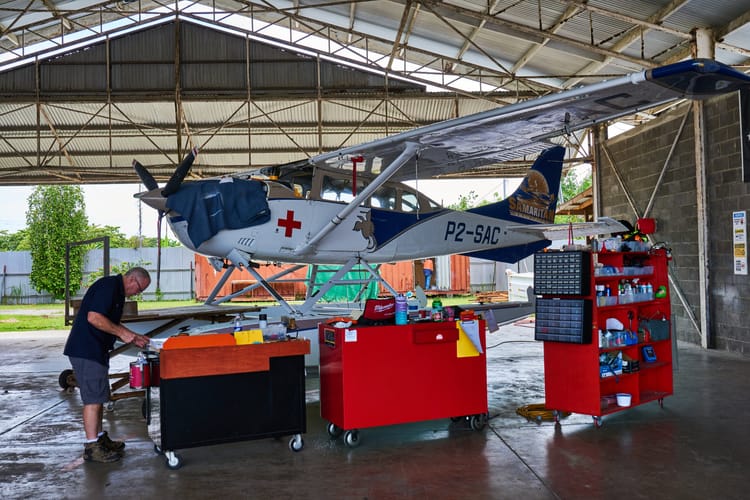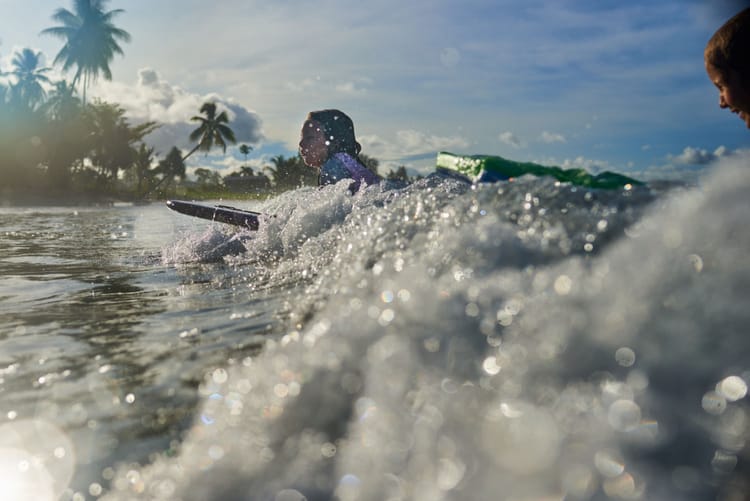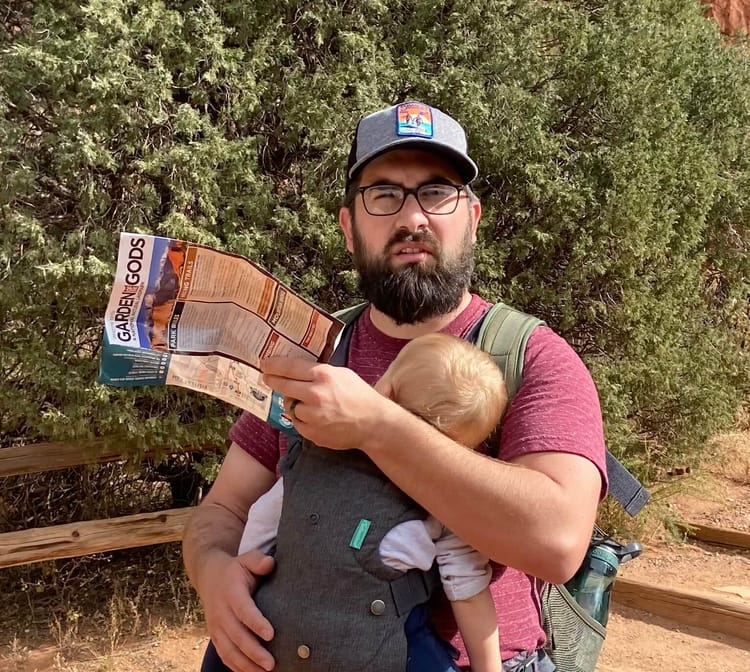Then Again, Mom Wasn't An Engineer

People often ask me, “Josh, how were you inspired to become an aircraft mechanic? It’s because you’re so smart, right? I wish I was smart like you.” If I have any skill whatsoever it’s because of providential mercy, not because of my own brilliance. I’m the crude oil at the bottom of the barrel of mechanics. It took a lot of refinement to make me usable. Plus, people don't actually ask me that question very often. If they do, they conceal their interest by laughing until they cry and walking away without waiting for my response, which is kind of rude now that I think about it.
My first success as a mechanic was demonstrated by my friend Bryan who, coincidentally is also an airplane mechanic.
Growing up I really wanted something with an engine to work on. I liked engines. They made noise, they rattled around, and they consisted of mysterious tidbits that somehow all worked together to make sure you didn’t have to walk anywhere. I liked that but I wanted to know more, kind of like a toddler poking a fork into an electrical outlet. The best way to figure out what tidbits are inside an engine is to just take one apart and look for yourself. The only obstacle in my path was my dad who didn’t share the same enthusiasm for disassembling things that I did. Dad was much more interested in my ability to reassemble the debris field that my engineering studies produced. “Can you put it back together again?” was a question that put a screeching halt to my forays into the world beyond my knowledge. It was a chicken and egg problem. How could I learn to reassemble stuff without taking it apart first? Granted, it is hard to put something back together when you disassembled it using only a large flat screwdriver and a hammer. But I found that if I limited my studies to only my stuff and not his, Dad remained pretty tolerant of my pursuit of knowledge, even if his hammer and flat screwdriver were always missing.
Since I was limited to working on my own possessions, I was constrained to performing experiments on bicycles and BB guns. Actually, my brother Andrew got mad when I worked on his BB gun and so I really only had one to experiment with. I quickly rendered it down to it's most basic components, then went a little further and found it didn't work anymore. So that left my bicycles.
Since there are only so many things you can do to a bicycle I soon became bored with it and began mixing and matching random parts from other bikes from my collection behind the shed. My collection consisted of various specimens I acquired through yard sales or scrap piles. From the parts, I would keep one bike fully assembled and generally functional, although it never looked like the same bike. It morphed into different shapes and sizes. I would sometimes fabricate pieces from scrap steel or aluminum to bridge the mechanical gaps that naturally occur when you try to merge two things nature never intended. My bicycle was like a neighborhood mutt. No one was quite sure what the original pieces were. Basset Hound? Labrador? Chihuahua? As long as the wheels went around when you pushed on the pedals, I determined my designs were a success.
Naturally I didn’t like keeping my brilliant designs to myself. One day Bryan was visiting. The only instructions we were given were "Don't get in trouble." The problem is you only become aware of trouble once you're in it, and then it's too late. Bryan and I were both pursuing engineering studies and he was interested in my latest bicycle design. I was eager to show it off. Surely bicycles were within in the margins of "not trouble."
As our luck went, my parent’s house was a perfect proving ground for putting various engineering projects to the test. There was a small creek out back in which many maritime projects were developed and vigorously tested. Dams were constructed. Creeks were diverted. Dads yelled when water washed out the yard and got too close to the basement windows, signaling to the engineers that the dam was a huge success. Boats were designed. Then scale models were carefully crafted from milk jugs, orange juice cartons, and styrofoam plates. The trick was to limit your hot glue usage when assembling the craft or else it lost positive buoyancy and sunk. I kept my projects under a veil of secrecy because competitors and communist dictators were always trying to steal my designs. Plus, mom would get suspicious and start asking questions about how many hot glue sticks I used. And where were her scissors anyway?! I was more focused on the grand vision of the project and didn't bother with such petty details. My prototypes were usually of military interest (they usually had guns on them) and so naturally one of the tests performed was seeing how long the boat could sustain buoyancy while engulfed in flames. It was one of many important safety tests, although I always saved the fire test until last. The results were noted carefully and with much satisfaction. Mom could never understand why I put so much effort into making boat models just to light them on fire. Then again, mom wasn’t an engineer.
But the proving grounds Bryan wanted to use wasn’t the creek out back, but the huge hill out front. My parents' house sits on top of a sizable hill (more like a mountain if you're a twelve year old) and from their driveway you could roll right out onto a paved stretch of tarmac that zigged and zagged for a good half mile before coming to a T at the bottom of the hill. If you overshot that T, and you didn't hit by cross traffic, you still weren't out of the woods. In fact, you just entered them and likely weren't coming out unscathed. It featured a 30% grade and was perfect for going fast, unless you were coming up the hill, of course. Then my thoughts began to wander to engines again, and how cruel it was that I didn’t have any to fiddle around with. Naturally though, we wouldn't worry about coming up the hill until we had the joy of going down it. Bryan gave my bike a good shake and, noting that nothing fell off, he assumed his preflight safety check was done. I was relieved he didn't shake it too hard.
"I want to go down the hill fast” he said.
“Sure,” I replied. That was a logical request. "Remember," I said, "You can't pedal backwards on this bike to stop. You have to grab the brake on the handlebar." I said this with barely contained pride. An important moment in a boys life is when he graduates from the pedal-brake-bike to the handlebar-brake-bike. Pedal brakes are for losers. Bryan nodded, like a test pilot who just received a critical piece of information and had the fortitude to proceed with the test flight anyway.
He hopped on my contraption and pedaled towards the brink of the hill. He slowly crested the hill and then, with a giant sucking sound, was gone, leaving behind only a few hair follicles and skin cells suspended in the air. For a moment it looked like Bryan was still there, but then a breeze blew away the hair follicles and skin cells and I realized Bryan was already halfway down the hill. He rounded the first corner like a motorcycle racer, leaning so hard he was pulling weeds out of the drainage ditch with his right ear. I lost sight of him after that but if my knowledge of gravity is correct, he wasn't going to slow down anytime soon. I was impressed.
Some time passed and I began to worry a little. Where was my bike? Soon though I heard someone dragging something up the hill. It sounded like a prisoner dragging chains through the hallway of a prison. There was Bryan dragging my bike up the hill! It looked a little burnt, probably from re-entering the atmosphere. Bryan didn't look much better. He was bleeding from elbows, knees, and the palms of his hands, all traditional places for real men to bleed. He had a crooked smile on his face, like his body was in shock and didn't want to tell him what had really happened.
"Wow! What happened?" I asked.
"I realized I was going too fast so I grabbed the brakes and flipped over the handlebars."
I was shocked. "You mean my brakes work?"
"Yea, well, they did. They're kind of melted together now."
"Phew! Imagine if they hadn't worked. You would'a got hurt!" I was pleased with my first mechanical success.
We both breathed a sigh of relief. Later we would try our hand at motorcycles, much to our mother's dismay. They couldn't understand why on earth we would risk our lives over stupid mechanical conquests. Of course, our moms aren't engineers. Our dads weren't too concerned. "Just remember, you're over eighteen so you have to pay your own hospital bills."





